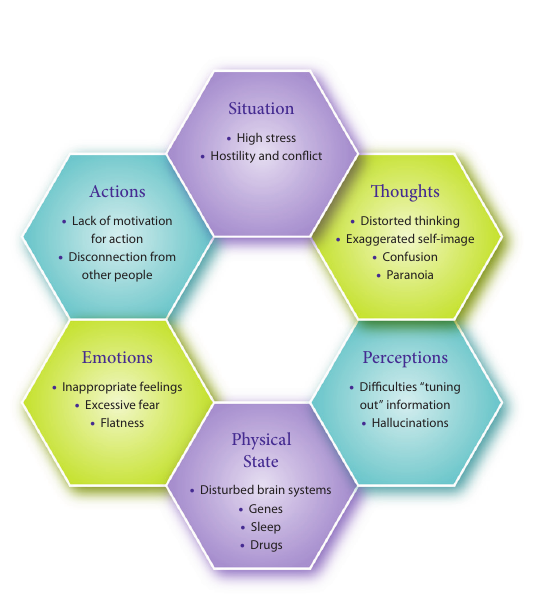Recognizing Early Warning Signs of Psychosis
Many people experience changes in behavior, thoughts, or feelings before any more obvious symptoms of psychosis appear. These are often called “early-warning signs”, signals that something is not right. These are the experiences that may have occurred before you started to hear voices or became preoccupied with unrealistic thoughts.
Common early-warning signs:
- Sleeping too much or too little
- Feeling anxious or tense
- Finding it difficult to concentrate
- Feeling more sensitive to sounds, lights, or colors
- Feeling down or sad
- Missing work or school
- Feeling “high” or excited
- Talking more or less than usual
- Not enjoying hobbies or other usual fun activities
- Not taking care of personal hygiene
- Not wanting to go out or spend time with family or friends
- Becoming easily annoyed at others
- Feeling suspicious of other people
- Avoiding things you need to do
Think back to the time before you developed psychosis, when you first noticed that you weren’t doing as well as usual. What were the first changes you noticed?
Knowing what early-warning signs you had before developing psychosis will help you recognize what to look for. The same changes may signal a future relapse.
Examining early-warning signs is most helpful when you can be specific about them. Stating that you had “problems sleeping” before psychosis is not specific. It is better to state that you “slept only five hours a night for one solid week.” Ask your Support Person to help you write your early-warning signs so that they are specific.
You want to catch these signs as early as possible. Stay on the cautious side at first and accept that you may have some “false alarms.” You can change your list of early-warning signs when you have more experience.
Fraser Health and British Columbia, Dealing with Psychosis Workbook (Page 69), 2012
A Closer Look at the Six Factors
Research shows that a number of things can influence an onset of psychosis. These things can be grouped together into six factors: situation, physical state, thoughts, perceptions, emotions, and actions. These factors interact with each other. For example, a stressful situation affects your physical state. When your physical state changes, your thoughts may also change.

Fraser Health and British Columbia, Dealing with Psychosis Workbook (Page 9), 2012